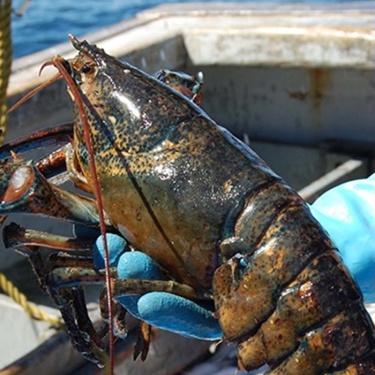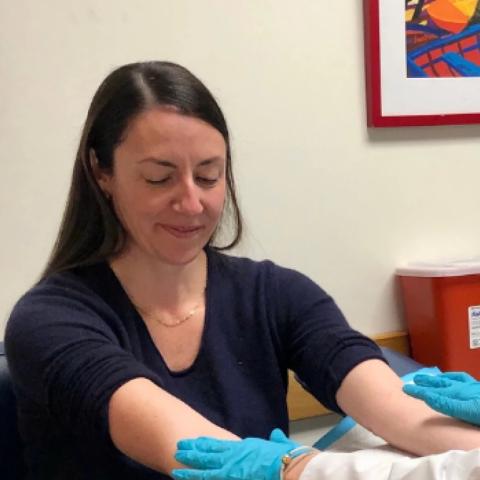Though we know eating fish is a healthy choice – it’s even included in the U.S. Dietary Guidelines – but programs promoting healthy eating for disadvantaged and low-income populations often leave fish out of their guidelines. The Hispanic community is the largest and fastest growing racial/ethnic group in New Hampshire, but also the second largest group living in poverty and disproportionately affected by chronic disease and other diet related risks. The Hispanic community may therefore widely benefit from eating more fish. To address this gap, Sherman Bigornia, assistant professor in the Department of Agriculture, Nutrition, and Food Systems at UNH, and partners will develop an online nutrition program based on narrative communication for behavior change to encourage low-income Hispanic adults in New Hampshire to eat fish. Their project, based on focus groups and interviews with key informants, will determine how best to reach the Hispanic community in New Hampshire. They will also make the curriculum available to other regions and communities to promote healthy diets and support fisheries across the country.
Principle Investigator

Sherman Bigornia, Ph.D.
Assistant Professor, Agriculture, Nutrition, and Food Systems, COLSA UNH
Sherman.Bigornia@unh.edu
Co-Investigators
Amy Hollar
Healthy Living State Specialist, UNH Cooperative Extension
Amy.Hollar@unh.edu
Sabrina Noel, Ph.D, R.D.
Assistant Professor, Director for Community Engagement, Center for Population Health, UMOVE Center Researcher, Zuckerberg College of Health Sciences, University of Massachusetts Lowell
Sabrina_Noel@uml.edu
Project Funding Cycle
2022-2023 NH Sea Grant Biennial Research Funding
Project Abstract
The U.S. Dietary Guidelines recommend the regular consumption of fish as part of a healthy dietary pattern. However, current SNAP-Ed (Supplemental Nutrition Assistance Program Education) and EFNEP (Expanded Food and Nutrition Education Program) curricula are limited by primarily concentrating on fruits and vegetables with less attention paid to finfish (fish) intake. Fish is a nutrient-rich and lean protein source associated with a lower risk of cardiovascular dis- ease, type 2 diabetes, and dementia. These health conditions are experienced by a high proportion of Hispanic adults, particularly those living with low-income. The overall goal for this integrated project, in partnership with Cooperative Extension, is to develop and evaluate a culturally-tailored online nutrition education program to increase fish consumption among low-income Hispanic adults residing in the Northeastern coastal state of New Hampshire. Formative research, including focus groups, key informant interviews, and fish access and availability surveys, will inform the development and cultural tailoring of the fish education. Novel narrative messaging (e.g. video testimonials from target community members) will be incorporated into the education plan. Evaluation of the impacts on fish consumption and fish-eating self-efficacy, attitudes, and behavioral capacity will be conducted using a pre and post-test study design. Completing this project will provide new knowledge on the barriers and facilitators to fish consumption experienced by low-income Northeastern Hispanic residents and the impacts of a novel culturally tailored online nutrition education program on fish consumption behaviors.
Project News

Bolstering Fish and Dairy Consumption in the Granite State
Bolstering Fish and Dairy Consumption in the Granite State
